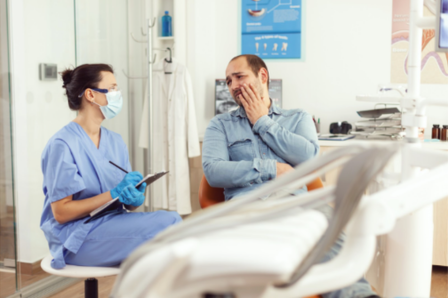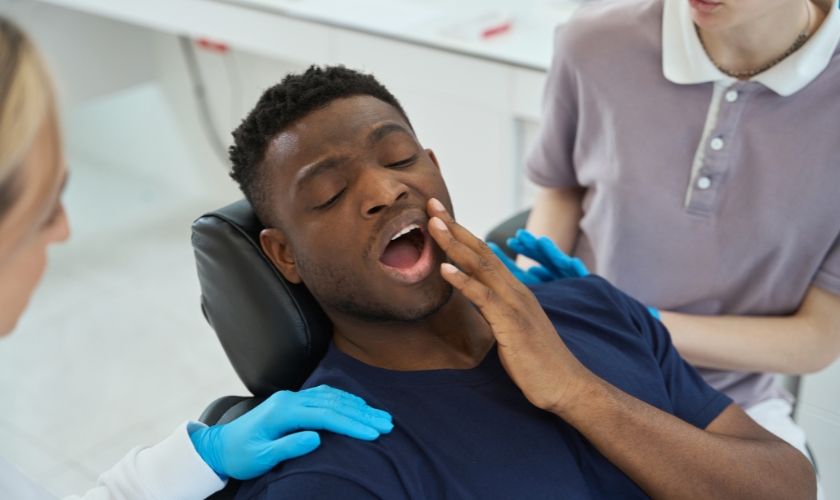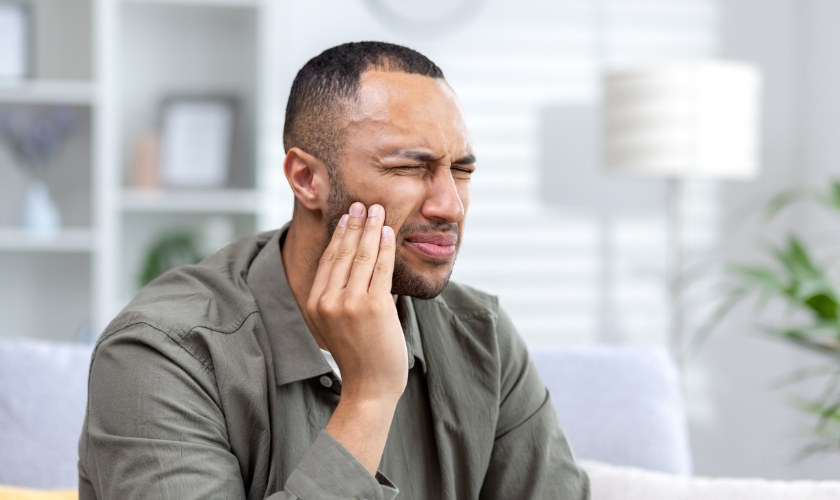
Knowing when to seek emergency dental care can make all the difference between saving a tooth and facing a long recovery.
Have you ever found yourself unsure if your dental issue requires urgent attention?
You’re not alone! Many people struggle to identify which dental problems need immediate care and which can wait for a regular appointment.
From severe tooth pain to a knocked-out tooth, certain dental situations demand quick action. Being prepared and knowing how to handle these emergencies can help prevent further damage and reduce long-term risks.
In this blog, we’ll walk through the common dental emergencies that require immediate treatment and guide you on what to do when they occur. So, whether you’re dealing with a painful toothache or wondering if that chipped tooth is serious, we’ve got you covered.
What Qualifies as a Dental Emergency?
Knowing the difference between a dental emergency and a non-urgent issue can save you time and discomfort. Dental emergencies often involve severe pain, bleeding, or infections that require immediate treatment. Common symptoms that signal a dental emergency include uncontrollable bleeding, unbearable tooth pain, and visible abscesses or infections.
Here’s how to tell urgent from non-urgent dental problems:
- Severe pain that doesn’t improve with painkillers is a sign of an emergency.
- Bleeding that doesn’t stop with pressure or medication.
- Infections that cause fever, swelling, or pain around the tooth or gums.
- Non-urgent problems, like minor toothaches or loose crowns, can wait for a regular dental appointment.
- Cosmetic issues, such as slightly chipped teeth, are often non-urgent but still worth discussing with your dentist.
Understanding these distinctions will help you respond appropriately to different situations, ensuring you get the emergency dental care you need when it’s necessary.
Signs You Should See an Emergency Dentist Immediately
Certain symptoms clearly indicate that you need to see an emergency dentist without delay. These signs are your body’s way of telling you that something more serious may be happening. When any of these occur, get help immediately:
- Uncontrolled bleeding anywhere in the mouth.
- Severe pain that doesn’t respond to over-the-counter pain relief.
- A knocked-out tooth, especially if it’s fully dislodged.
- Facial swelling, particularly if it comes with a fever.
- Exposed nerves or significant fractures in the teeth.
Waiting to address these symptoms can lead to complications or more extensive treatment. Immediate intervention by an emergency dentist near Wichita can alleviate pain, prevent infections, and preserve your dental health.
4. When a Tooth Gets Knocked Out: Immediate Actions
A knocked-out tooth counts as one of the most urgent dental emergencies. Quick action can save the tooth and prevent long-term damage. Follow these steps to maximize your chances of saving the tooth:
- Find the tooth and handle it by the crown (the top part), avoiding the root.
- Gently rinse the tooth with water, but don’t scrub it.
- Preserve the tooth by placing it in milk or a saline solution to keep it moist.
- Seek emergency dental care within an hour, as acting quickly improves the chances of reimplanting the tooth successfully.
5. Persistent Toothache: How to Know When It’s an Emergency?
Toothaches can range from mild discomfort to excruciating pain, but how do you know when it becomes an emergency? Persistent or sharp pain, particularly when it worsens with pressure, can indicate a serious issue. Here’s when a toothache requires immediate attention:
- Sharp, lingering pain that doesn’t go away with over-the-counter medications.
- Sensitivity to hot or cold foods, combined with swelling.
- Swelling or redness around the gums, which could point to an infection.
- Pain that radiates to the jaw or ear, which may signal a more serious condition.
Infections or abscesses could be the cause behind a severe toothache. Early diagnosis through emergency dental care can prevent the spread of infection and reduce pain.
6. Chipped or Broken Tooth: Should You Seek Immediate Care?
Not all chipped or broken teeth need urgent treatment, but some situations do require immediate care. Assessing the severity of the damage will help you decide. Here are guidelines on when you should seek help right away:
- If the break exposes the nerve, you’ll likely feel intense pain. This requires immediate treatment to prevent infection.
- A large chip that causes sharp edges can cut the inside of your mouth and should be smoothed by a dentist.
- If there’s swelling or bleeding, it’s best to see an emergency dentist to stop further damage.
- In the meantime, use dental wax to cover any sharp edges and prevent injury to your gums or cheeks.
7. Soft Tissue Injuries: Why They Can Be Serious?
Injuries to the gums, tongue, cheeks, or lips might seem minor, but they can pose serious risks if not treated properly. Soft tissue injuries in the mouth are prone to infections, so it’s essential to act fast. Here’s what to do:
- Stop the bleeding by applying gauze and gentle pressure to the area.
- Clean the wound with water or a saline solution to avoid infection.
- Cold compresses can reduce swelling and discomfort.
- Seek professional care if the wound is deep or won’t stop bleeding after 10 minutes.
For severe injuries, visiting an emergency dentist Wichita or the nearest emergency room can prevent long-term issues like infections.
8. Abscesses and Infections: Dangerous Dental Emergencies
An abscess is a severe infection that forms around the tooth or gums. Left untreated, it can lead to life-threatening conditions. Immediate treatment is crucial. Here are the warning signs of an abscess:
- Severe pain that spreads to the jaw, neck, or ear.
- Fever, indicating the infection may be spreading.
- Swelling in the face or gums, which can indicate a dangerous buildup of pus.
- Difficulty swallowing or breathing, which may suggest the infection is becoming more serious.
Understanding when to seek emergency dental care can save your smile and prevent long-term damage. Whether it’s severe pain, swelling, or a knocked-out tooth, quick action makes all the difference. Don’t wait for your symptoms to worsen—take control of your dental health. If you’re experiencing a dental emergency, contact Newton Dental Studio right away. Our team is ready to provide the urgent care you need to protect your teeth and gums.



